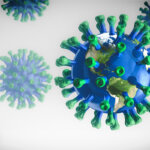A new article published in the journal BMJ Open uncovers the serious implications associated with exposure to chemical warfare agents.
Conducted by researchers at the University of Gothenburg, their team determined that exposure to chemical weapons led to a decrease in one’s ability to start a family and the onset of chronic health problems.
The study was based on interviews with 16 survivors of a 1988 catastrophe in the Middle Eastern nation of Iraq. The event resulted in a chemical warfare attack. Ten women and six men in mid and late-adulthood were assessed and diagnosed with chronic lung complications.
It’s been shown in the past that such victims exposed to chemical warfare suffer from a decline in physical and mental health, however, the study strongly showed that the highest concern is the inability to have healthy children as a result.
Although there is no strong evidence that suggests exposure to chemical warfare can cause such reproductive issues, there have been many cases of severe somatic and psychosocial symptoms, particularly affecting women more than men.
“The women regard themselves as contaminated, and others think the same. There’s a fear of being unable to have healthy children, although there’s no strong scientific evidence for that,” said Faraidoun Moradi, co-author of the study, in a news release.
“The exposure not only affects women’s physical work capacity, but also has repercussions like social stigmatization, emotional neglect, and a sense of social abandonment,” Moradi also stated.
“We need more research and knowledge in this field to improve treatment and administration of survivors in health and social care.”


